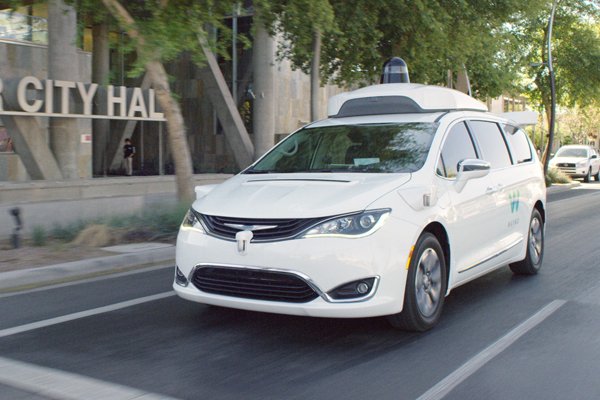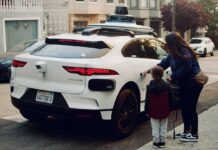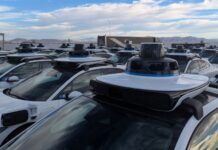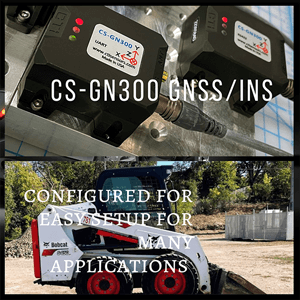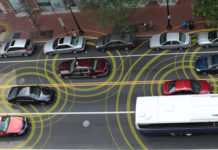WASHINGTON — Lawmakers in the House took a major step on Wednesday toward advancing the development of driverless cars, approving legislation that would put the vehicles onto public roads more quickly and curb states from slowing their spread.
Under the bill, which was approved by a unanimous voice vote, carmakers can add hundreds of thousands of self-driving cars to America’s road in the next few years. States, which now have a patchwork of rules regulating the vehicles, would have to follow the new federal law.
The House vote sets the stage for a battle between safety advocates and companies that make the largely unproven technology. Automakers say the vehicles could greatly reduce roadway fatalities and help their businesses, but many safety advocates say they are not ready for wide deployment. The next steps will come in the Senate, which is expected to consider a similar bill soon.
Lawmakers who support the legislation said the country’s confusing regulatory environment was hampering the driverless-car industry’s prospects.
“Self-driving cars have the potential to save lives especially when the majority of fatalities are caused by human error,” said Representative Debbie Dingell, Democrat of Michigan. “The question is whether we are in the driver’s seat and not to cede it to China or India.”
Auto and technology giants, including Ford Motor, General Motors and Waymo, Alphabet’s driverless division, have pushed hard for the new law. They have also pressed regulators at the National Highway Traffic Safety Administration to clarify safety guidelines covering self-driving technology. Elaine L. Chao, the transportation secretary, is expected to announce revised guidelines for the vehicles next week in Michigan.
In recent years, dozens of states have passed laws related to self-driving safety, some of which carmakers view as too heavy-handed. The companies have, for example, fought proposals in California, Michigan and New York that would require driverless cars to be electric-powered and to contain steering wheels and brake pedals.
“The reason why Congress is doing this is that there was a growing concern of a vacuum created because N.H.T.S.A. hadn’t acted and the states were acting in N.H.T.S.A.’s place,” said Marc Scribner, a senior fellow at the Competitive Enterprise Institute, a conservative-leaning research group in Washington.
The House bill allows manufacturers of driverless cars to obtain some exemptions from vehicle safety regulations for 25,000 vehicles in the first year after the legislation takes effect and up to 100,000 vehicles within four years. The carmakers would still have to meet certain safety standards being developed by N.H.T.S.A.
Safety and labor advocates have criticized the exemptions are too broad. As written, some safety experts say, driverless cars could have weaker standards for steering systems, brakes and airbags.
“This bill threatens the safety of the American public because it will give automakers a huge number of exemptions for safety standards for no reason at all but because they want their autonomous vehicles to be first on the lot,” said Joan Claybrook, a chairwoman of Advocates for Highway and Auto Safety. “This is totally reckless.”
Labor unions urged lawmakers to look more critically at driverless trucks and cars that could eventually put millions of drivers out of work. And Consumers Union sent a letter to House members saying the bill was passed too quickly.
“The overall number of vehicles that can receive safety exemptions should be significantly reduced, and neither the number of exempted vehicles nor the duration of exemptions should be increased without specific safety-related justifications,” Consumers Union said in the letter.
Although the bill prevents states from creating laws related to the design and operations of driverless cars, the states would maintain authority over licensing, insurance and public safety transportation laws.
State officials have countered by saying those delineations would be meaningless. If no one is technically driving a car, they say, how could a state hold drivers accountable for a crash?
Companies have argued that traditional vehicle safety laws are outdated and do not make sense for vehicles engineered without a driver in mind. Business lobbyists said that Congress needed to step in to stop the rise of state and city regulations created in recent years. The bill requires that N.H.T.S.A. create final rules for self-driving vehicle safety standards within two years.
“We applaud the committee’s work to strengthen provisions to limit the possibility of excessive litigation that could ultimately delay, hinder, or halt development,” said Tim Day, a senior vice president at the U.S. Chamber of Commerce.



